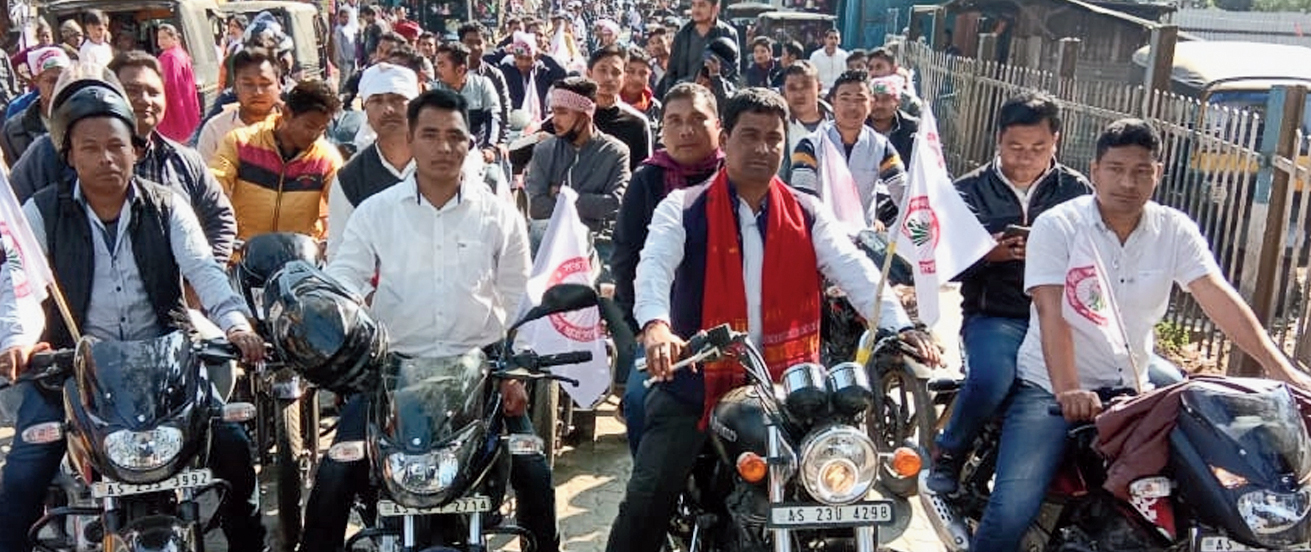A committee of ministers of the Assam government on according Scheduled Tribe status to six of the state’s communities, held its first meeting on Sunday and decided to submit its report to the Centre by February 15.
The last session of the Parliament (budget session) will end on February 13.
Setting February 15 as the last date of submission of the report has raised questions on how the Centre will materialise its promise to the six communities and whether it would be yet another election “bait” as alleged by the leaders of these communities.
The president of the All Moran Students’ Union, Arunjyoti Moran, said the Centre has done enough drama in the name of granting Scheduled Tribe status to the community and formation of the committee was a move to buy some more time.
“The Centre had earlier formed another committee on the issue, which did not submit its reports on time. We think the Scheduled Tribe issue is a ploy of the Centre to divert the people’s attention from the Citizenship (Amendment) Bill 2019. If the Centre is serious about the six communities, it should pass the Scheduled Tribe bill on the very first day of the budget session from January 31,” he said.
The Centre tabled The Constitution (Scheduled Tribes) Order (Amendment) Bill, 2019 in the Rajya Sabha on January 9, the last day of the winter session, to grant Scheduled Tribe status to the Moran, Matak, Tai Ahom, Koch Rajbongshi, Chutia and tea garden community.
However, no discussion and voting took place on it.
The Sunday meeting of the committee at the Assam secretariat was attended by its chairman and finance minister Himanta Biswa Sarma, convener and tourism minister Chandra Brahma and three members, panchayat and rural development minister Naba Kumar Doley, power minister Topan Gogoi and labour and employment minister Pallab Lochan Das.
The meeting was supposed to be held on Friday but did not take place because of Sarma’s absence.
Sarma told reporters that the meeting would collect the population figures of the six communities and continue talks with all the stakeholders, like organisations representing the existing Scheduled Tribe and OBC communities from January 28.
Sarma said they will sit with the All Assam Tribal Sangha, which has been opposing the Centre’s move to grant Scheduled Tribe status to the six communities, on January 28. “On January 30 we will sit with the representatives of the six autonomous councils for the Scheduled Tribes and on February 3 with the six communities,” he said.
Pallab Lochan Das told The Telegraph that the committee will look for ways to accommodate the six communities by changing the existing acts.
Though the representatives of the six communities have seen the Centre’s move to grant Scheduled Tribe status to the six communities as a “ploy” to divert people’s attention from the controversial Citizenship (Amendment) Bill, 2019, the existing Scheduled Tribes have raised their protest against the move.
On Monday, several Bodo leaders, including Bodoland Territorial Council chief Hagrama Mohilary, met Union home minister Rajnath Singh in New Delhi expressing concern on the development.
However, Singh told the Bodo leaders that Scheduled Tribe status to the six communities will be granted “only after ensuring that the political and employment related privileges and rights of the existing tribes in Assam are fully protected”.











